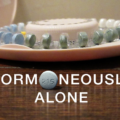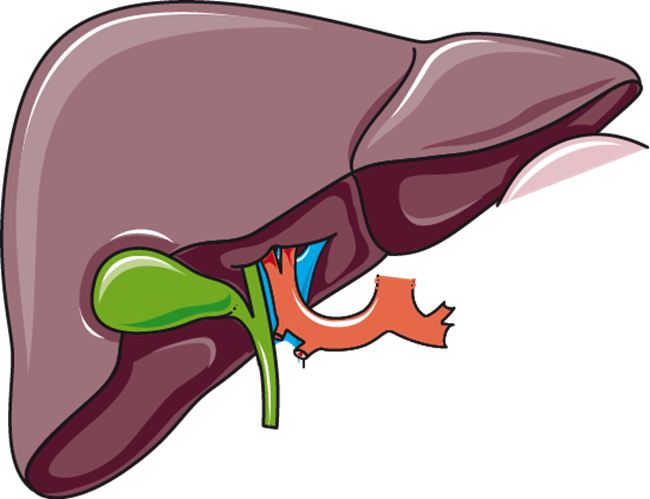As part of the ‘new normal’ being ushered in as a result of COVID-19, I hope we will turn a critical eye to health, wellness, and the industries that profit from them. We should take the opportunity to reconsider the pros and cons of Big Pharma’s cash cows – old and the new – from new vaccines being rushed through protocols to old drugs with false reassurances – specifically, hormonal birth control. Perhaps we can make ‘just taking the doctor’s word for it’ part of the old normal.
Indeed, this virus gives us good reason to weigh the effects synthetic hormones have on the body – even when not being subjected to a pandemic. But, when it comes to COVID-19, there are essentially two schools of thought regarding hormonal contraceptives – one suggests a protective effect and the other focuses on the accentuation of a shared complication.
Blood Clots as Common Ground
Let’s begin there. It has been pretty well established that women taking combination birth control face 2 to 6 times the risk of developing venous thromboembolic events (VTEs), and they double their risk of having a stroke.
Earlier this summer, medical professionals also began to notice several unusual hypercoagulation abnormalities among COVID-19 patients. They documented increased platelet production, altered gene expressions that led to increased levels of several clot-related proteins and cytokines, which translated into many macro- and micro-vascular VTEs. One study reported that nearly a third of COVID-related ICU patients had a VTE.
Though it is too early to have any clear answers, researchers in the current edition of the journal, Endocrinology, are calling on their peers to study how the paths of each of these two means of hypercoagulation (COVID-19 and hormonal contraceptives) may intersect and/or compound the effects of the other.
Giving New Meaning to ‘Protection’
On the other hand, a preliminary study in the UK found that young women taking hormonal birth control had fewer cases of and fewer hospitalizations from COVID-19. The results didn’t surprise them. In fact, it’s what they expected because of the role estrogen plays in our immune system.
A nurse practitioner quoted in the linked article proclaims, “Further evaluation of how estrogen may magnify [immune system] effects could be very promising in terms of prevention of COVID-19 and reduction in the severity of symptoms.”
Risk Versus Protection
So, which is it – does birth control pose an increased risk of blood clots in the face of COVID-19 or does it provide an added layer of protection? My guess is that the answer is probably both, because of the idiosyncratic nature of how these drugs interact with each woman’s unique body chemistry.
Women who are already susceptible to blood clots are likely to face a greater risk from the dual threat posed by potent contraceptive drugs combined with the effects of the virus. Other women, who are genetically predisposed, may experience something of a protective effect from their birth control, but for those women, the trade-off may not be worth it in the long run.
Estrogen in Name Only
Always and everywhere, it’s important to remember that the estrogens contained in birth control are NOT the same as the estrogens your body produces. Therefore, it’s misleading to assume any type of protection from infectious disease that seems to come from The Pill is equivalent to safeguards afforded by your body’s natural estrogen. Chances are it actually has more to do with the way the synthetic hormones disrupt your body and modify your natural gene expression.
The most interesting genetic activity, as it relates to pathogens (and birth control), occurs in the Human Leucocyte Antigen (HLA) system. In fact, it is the exposure to pathogens that scientists believe contribute to the diversity of the alleles and proteins produced within this gene system. The more diverse our HLA system is, the more efficient our immune system is.
Going Off the Deep End With Genetics
This is a good place for a time out just to clarify that I am not a genome expert. When it comes to navigating the gene pool, I’m pretty much in over my head the moment we venture away from the splash pad.
But, that’s okay, because the evidence is pretty straightforward and, I think, pretty fascinating. For this article, we are going to focus on one gene, CR1, the receptor to C4. (If you have been diagnosed with certain autoimmune disorders or vascular diseases, you may already be familiar with C4, via the C4 blood test used to diagnose many of these disorders.)
The CR1 gene is located among a region of other ‘complement activation’ genes of chromosome 1. It encodes a glycoprotein that mediates several immune complexes. Decreases or mutations of this protein have been associated with everything from gallbladder carcinomas to systemic lupus erythematosus (SLE), but have also demonstrated a protective effect against malaria.
Sometimes CR1 serves as a protagonist (providing immune protection) and sometimes it’s an antagonist (increasing susceptibility). And, the synthetic hormones in birth control seem to influence CR1’s dynamic relationship with these various diseases.
Again, I’m humbly aware of my place as a layman, and my limited knowledge of the human genome. It could be, as I build my case about these various actors and try to connect their roles to particular disease states, I do nothing more than prove the six degrees of CR1. Much like trying to connect actors who shared screen time with Kevin Bacon, their relationship may go no further, but it certainly feels like they are working from a common script.
I would also like to thank Nina Rose, an Australian reader who has shared a lot of valuable insight with me over the past couple of years. She recently contacted me to suggest there seemed to be a strange relationship between malaria, COVID-19, and certain autoimmune diseases.
Let’s dive in. Shall we?
How Malaria Sparked a Human Evolution
In terms of speed and efficiency, scientists recently discovered one of the most dramatic displays of evolution within the human genome. As malaria swept across sub-Saharan Africa about 42,000 years ago, a handful of the population were blessed with a genetic mutation, which protected them from the parasite frequently spread by mosquitoes. Then, about 8,000 years ago, something happened in the region that caused this mutation to explode to the point that 99% of the population enjoyed its protective effect from malaria.
It is believed that interactions within HLA molecules modulate the functionality of natural killer (NK) cells, a specific type of white blood cell that plays a significant role in battling malaria, and that’s where this protective mutation seemed to initiate.
However, there is a trade-off. As a consequence of having this malaria-resistant, hyper-efficient immune system, this population finds itself highly susceptible to other diseases, such as sickle cell disease and autoimmune illnesses, like SLE.
Malaria and SLE on Opposite Sides of the Coin
Not surprisingly, several ethnic groups whose ancestors faced devastating outbreaks of malaria, now find themselves with an increased prevalence of SLE among their population.
Further evidence of the inverse relationship between malaria and SLE came when a team of researchers in India visited a malaria endemic region and found that lower CR1 expression protected against malaria, but left the participants more susceptible to the development of SLE.
Written in the SARS
Scientists studying severe acute respiratory syndrome (SARS) back in 2005 found that, in the early stages of the disease, CR1 expression in red blood cells dropped dramatically, and then gradually returned to normal in the later stages of the disease.
But, what about SARS-CoV-2, the virus that causes COVID-19?
During the first wave of the pandemic, French researchers reported that a “clear acquired decrease of CR1 density (in red blood cells) from COVID-19 patients was observed, particularly among fatal cases.” They recommended the use of CR1 or CR1-like molecules as a treatment to reduce inflammation.
Birth Control and Ill-Fitting Genes
The difference with SLE (and all autoimmune diseases) is that they have a genetic component. You must be predisposed in order to acquire the disease, but the question is – over the generations, could we be altering our genes and creating new genetic predispositions to these diseases?
I believe it’s possible. As I wrote previously on these pages, the incidence of lupus has more than tripled since 1960. Ninety percent of diagnoses are women. And, women who take hormonal birth control are fifty percent more likely to develop lupus than non-users. Clearly, the introduction of these potent contraceptive drugs has provided a devastating catalyst for an explosion of new cases, and they appear to be creating alterations by acting on the same HLA pathway.
But, knowing that SLE requires a genetic predisposition, is it foolish to suggest birth control could also make you more susceptible to a virus?
The Virus Connection
We’ve seen a bit of the yin-yang relationship between malaria and SLE. To carry it one step further, isn’t it interesting that hydroxychloroquine, an anti-malarial drug, is one of the most common treatments for SLE. Now, consider that many doctors claimed to have success using this same drug to treat COVID-19 patients. Personally, I think the only reason it was shot down is because the drug companies were looking for a bigger payday, but that may just be a reflection of how little faith I have in the drug companies.
Admittedly, the idea of birth control making you more susceptible to the Coronavirus sounds dubious, but the concept isn’t without precedent. In 2015, researchers studying the effects of injectable contraceptives and hormonal IUDs discovered these drugs dampen the body’s “innate antiviral mechanisms.” Their study focused specifically on HIV and concluded that the synthetic hormones influenced the “expression of immune-related genes in the endometrium” and left women more susceptible to the transmission of HIV from their partner.
Breaking News
Just as I was completing the first draft of this article, a new study came across my newsfeed. Researchers are warning that some of the new COVID-19 vaccines could also increase the risk of HIV infection. Interestingly, the biggest risk seems to be among men who take the vaccine.
The Takeaway
Okay, I confess, this is sort of like a used “Connect the Dots” book your mom picked up at a consignment shop. I’m throwing down a lot of dots, but even where they appear to already be connected, that connection may be a little faint.
Maybe some of you can connect the dots better than I have and can ultimately tell me what the big picture is.
For now, I’m content thinking of it this way. When it comes to birth control or any of the new COVID vaccines, the drug companies will tell us it offers a protective effect. That’s the yin. But, we must always question what is the possible yang associated with this protection.
Remember, the changes in CR1 levels can be a protagonist on one hand and an antagonist on the other. Is the protection worth the risk? Is the yin worth the yang? Should we approach any drugs at “warp speed?” And, when you’re weighing the benefits to risks, always take into account how long it’s been since Kevin Bacon actually made a good movie.

The FDA approved The Pill despite it not being proven safe. Today, it has been linked to everything from blood clots and cancer to lupus and Crohn’s disease — and still has not been proven safe.
This book explores the medical and historical disconnects that brought us to this point.
Last updated on October 21, 2023 at 9:38 pm – Image source: Amazon Affiliate Program. All statements without guarantee.
We Need Your Help
More people than ever are reading Hormones Matter, a testament to the need for independent voices in health and medicine. We are not funded and accept limited advertising. Unlike many health sites, we don’t force you to purchase a subscription. We believe health information should be open to all. If you read Hormones Matter, like it, please help support it. Contribute now.






























